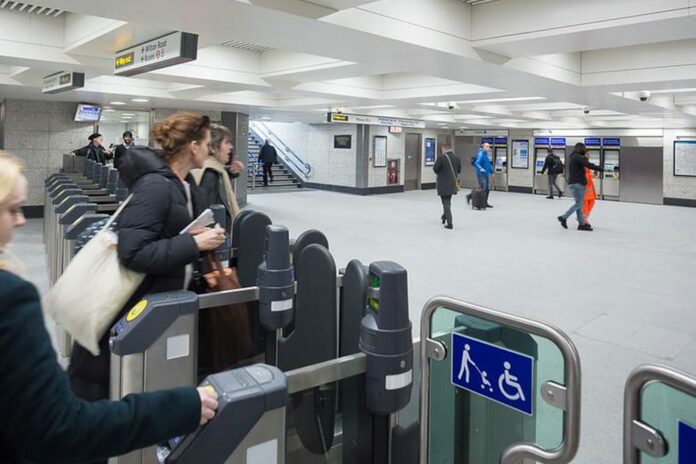The mayor of London Sadiq Khan, in an exclusive interview with RailBusinessDaily, says government needs to support Transport for London (TfL) for major projects to help with the growth of the capital.
Speaking exclusively to RBD at the opening of Bond Street station on the Elizabeth line on 24 October, he spoke about the current financial pressures facing TfL, which has so far received more than £5 billion in government support since the start of the Covid pandemic in March 2020. This will rise to £8 billion following the latest funding agreement announced on 30 August.
The mayor told RBD that TfL relies on receiving around 70 per cent of its income via fares. He called that situation “really poor”, adding: “we find other ways to increase revenues and fares. We’re the only city in the western world, actually the world, that gets so little support from the government now. Most cities get about 30 per cent of their incomes from fares, some about 40 per cent, some 45 per cent. We have north of 70 per cent; that’s why it’s really important to get passengers back, to get communities back and having great stations like this is one way of doing so.”
He spoke about how the ongoing situation will affect plans including the Bakerloo line extension and any further Crossrail extensions.
The mayor told RBD: “The government has agreed that when it comes to capital expenditure they will support us going forward and what we’re trying to say to the government is global cities don’t stand still, they have got to carry on going forward.
“So we need government to support us in relation to a Bakerloo line extension south, change the trains on the Bakerloo line, we should be talking about a high speed connection, but also about Crossrail 2, we should be working on improved trams in the south of our city. Why? Because the population is growing, you’re going to plan for that growth, you can’t stand still.”
He said that if you rely upon the lines you’ve got now as the population grows, so the population asset becomes less attractive. “That’s why it’s really important when you go to Hong Kong or Singapore they’re planning for further expansion through improving infrastructure. Go to most cities in Europe and they invest far more in rail, they don’t have an ad hoc investment – stop, start, stop, start, stop, stop. That brings prices down because you need the same engineering, the same expertise. Whereas some of our expertise is going to HS2, we’re going to lose a lot of it unless there’s further investment in infrastructure in London.”
He confirmed he’d been to the Siemens Mobility factory in Goole where new trains for the Piccadilly line are being assembled. “We need to, at the same time as getting the new trains on the Piccadilly line, get support from the government for signalling.
“Imagine the capacity increase with not just new trains but signalling as well. That’s why it’s really important for the government to understand that actually, when you invest in London, you invest in the country.
“Every pound you invest in capital in London, 55 pence goes out of London. The Piccadilly line trains are built in Goole, the trains on the Elizabeth line are built in Derby, so it’s really important for the government to realise when you invest in London, you invest in the country.”
Image credit: Transport for London



































 0113 2082620
0113 2082620 info@railbusinessdaily.com
info@railbusinessdaily.com 15 Mariner Court, Wakefield WF4 3FL
15 Mariner Court, Wakefield WF4 3FL

